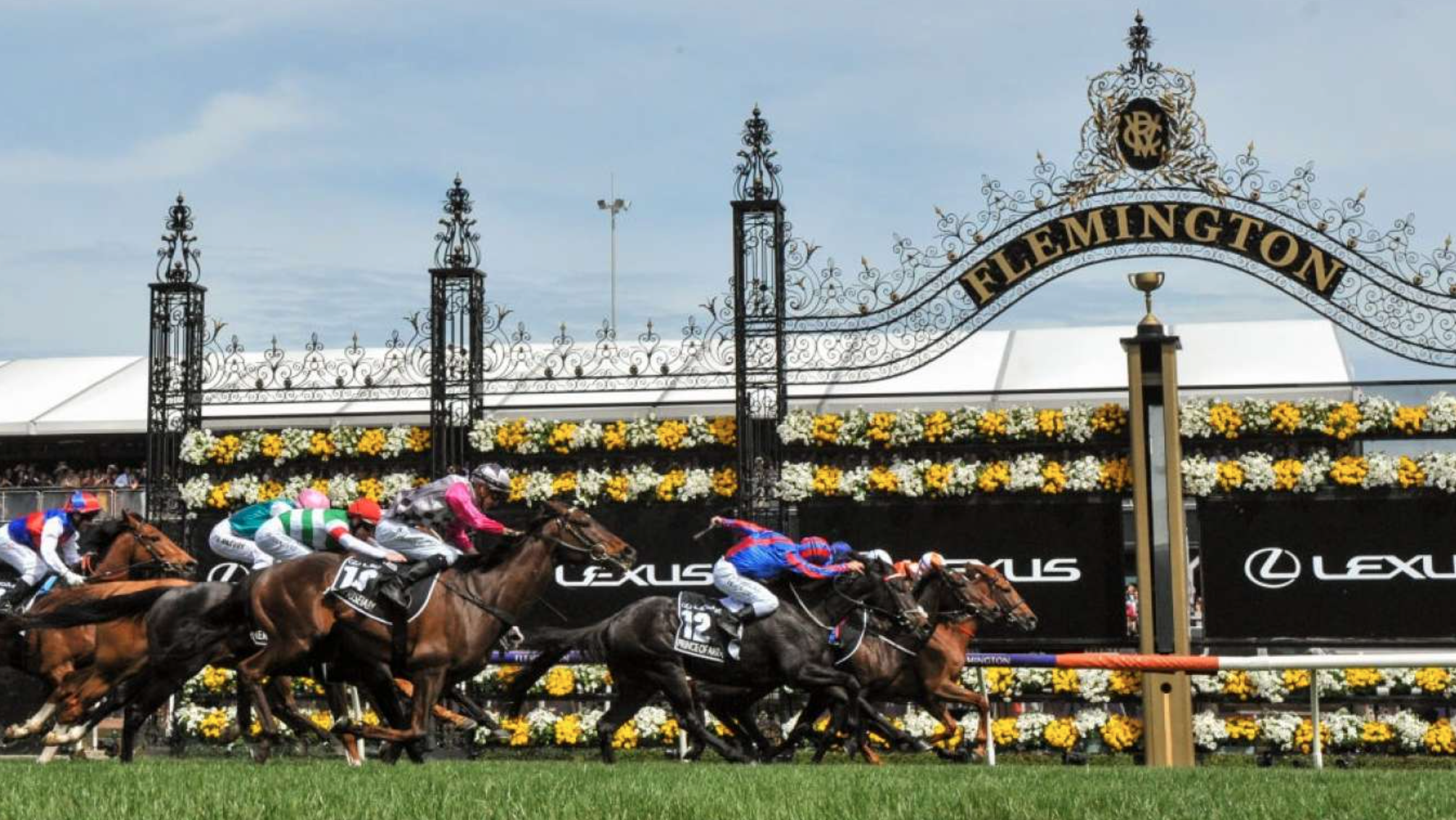TV networks say ‘nup’ to the Melbourne Cup – soon you might, too
The Melbourne Cup is one of a number of very different things:
a) A fashion show that happens to be situated on the perimeter of a 3,200-metre horse race on turf.
b) A mid-afternoon office party that involves lucky dip dollar bets and champagne in coffee cups and also happens to be centred around a 3,200-metre horse race on turf.
c) A mild annoyance about half an hour after the Reserve Bank board announces its decision on interest rates.
d) A 3,200-metre horse race (on turf) where odds and jockeys and track conditions are studied and debated, and serious money is on the line.
The final scenario is true for only a tiny portion of our population, yet it’s how Tabcorp is trying to shape the entire event from next year onwards, by placing a number of heavy restrictions on whatever TV network ends up broadcasting the Melbourne Cup.

Why does a betting company get to put restrictions on anything? You may be typing this into the comments right now, or exclaiming (perhaps without context) to the other parents on the soccer sidelines.


I quite enjoyed the tone of this opinion piece.
Yep, the Cup is on borrowed time.
As someone who couldn’t give a rats ass about gambling or fashion on the field, but is genuinely concerned about the aforementioned animal brutality (assuming there are a lot of us!), I’d just like to see it kept as a general, fun public holiday.
Im sure there are plenty of other days for Gai Waterhouse to strut around in a ridiculous $5000 hat.
Boring. Simply stating all the same ‘loose’ facts about the Cup and gambling. There is not a shred of real-life scenario/evidence in this. Let’s not mention the dollars and the economic impact this generates for the state yearly! People are not betting on the Tennis? Football? Car Racing? Seriously… Sounds like it is written by a guy who drives a Tesla, has an iPhone but not ‘too’ worried about all the child labor that goes into those products. Put your power to good use and actually do some research, then pen something that isn’t click bait.
The Melbourne Cup will never cease to exist.
It probably will when the universe ceases to exist
It’s an experience, rather than a spectator sport, and it’s losing interest year after year because the remainder of the broadscast is nothing but fluff that is focused on the very worst of society.
“Domestic wagering turnover on 2022’s four Flemington race meetings totalled a record $776 million, representing a seven per cent increase year-on-year and a 23 per cent increase on pre-COVID results in 2019.
Wagering returns are the primary funding source for the Victorian thoroughbred racing industry which generates 25,700 full-time equivalent jobs and over $3.4 billion in economic benefit to the state of Victoria each year.”
Sounds like it’s really on borrowed time
The horse racing industry in Australia contributes more than $1 Billion in federal and state government taxes each year and the economic value to the economy is estimated to exceed $5 Billion per year. So to report that the pinnacle event of the industry is on borrowed time is ludicrous and uninformed.
Almost libellous.
Certainly ridiculous.
Do better.
Not necessarily disagreeing but this is a very Sydney-centric view of how the race is viewed. Office parties?
I have been in Brisbane offices where a small party is held to watch the cup. It isn’t just a Sydney thing.
It is the race that stops the nation, y’know.
It is notable that enthusiasm in the office from when I first started working 20-ish years ago to nowadays is dramatically lower. The idea the race is on borrowed time feels true.